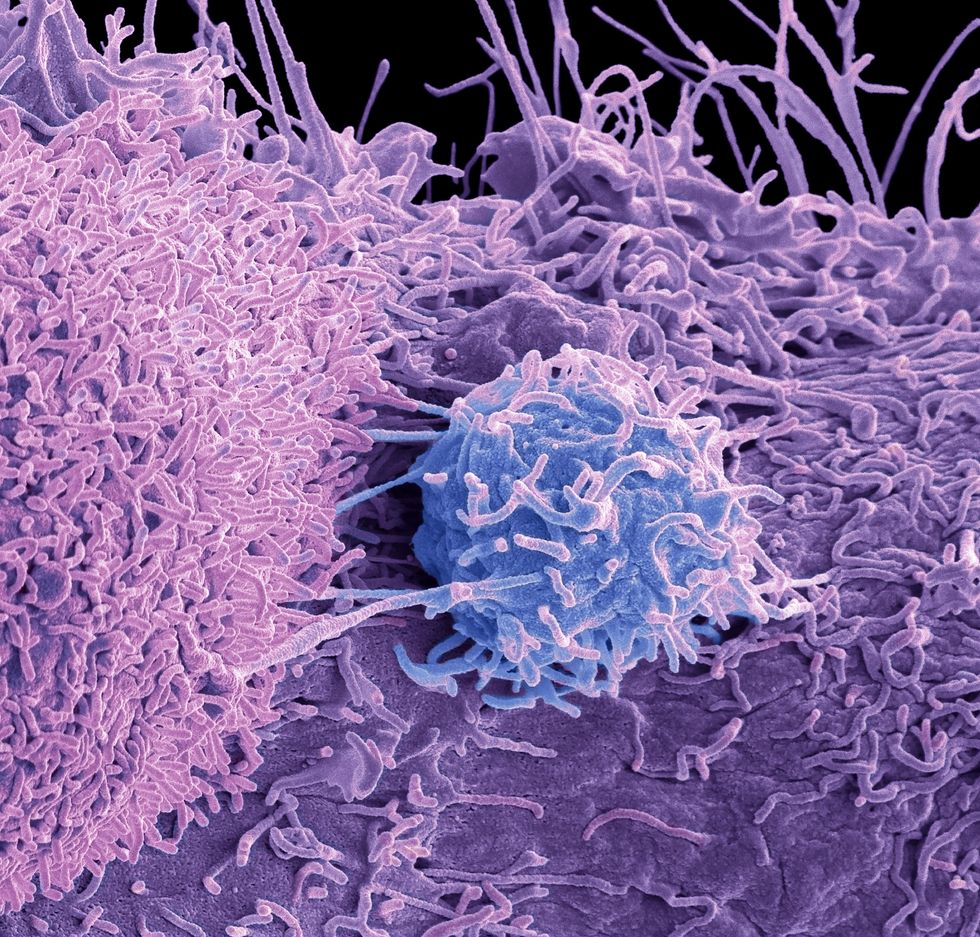Cancer warning as sudden and unusual food craving could signal disease 'long before diagnosis'

Unusual food cravings could serve as the body's advance warning system
Don't Miss
Most Read
The public has been alerted to an unexpected early warning sign of cancer: unusual food cravings that emerge months before diagnosis.
These intense desires for specific foods, particularly items never previously enjoyed, could serve as the body's advance warning system.
A viral Instagram video viewed nearly two million times highlighted how doctors believe the body transmits signals well before any formal diagnosis occurs.
The influencer, who goes by @astraworld2025, stated: "Many doctors are convinced: the body sends SIGNALS long before any diagnosis."

Food aversions and altered dietary preferences are widely reported before a cancer diagnosis
|GETTY
These cravings differ from ordinary food preferences, manifesting as overwhelming urges that feel almost compulsive in nature.
Scientific studies have established links between food cravings and multiple cancer types, including breast, ovarian and endometrial malignancies.
Italian researchers conducting a 2022 review examined seven studies on this phenomenon and discovered that "food cravings have been found to be associated with breast cancer, lymphoma, and ovarian or endometrial cancer".
The influencer's video highlighted that these aren't simple preferences but rather urgent demands from the body.
They explained: "It's not just 'I want to treat myself,' but as if the body is shouting: 'Give me this right now.'"
Similar to pregnancy-related taste changes that disappear after childbirth, these cancer-associated cravings typically resolve following treatment.
Patients developing gastrointestinal tumours frequently experience powerful sugar cravings several months before receiving their diagnosis.
A medical professional quoted in the viral video revealed: "In patients with gastrointestinal tumours, a few months before the diagnosis, a strong craving for sweets appears. People eat ice cream by the kilo, even though they never cared for desserts before."
The mechanism behind this phenomenon relates to cancer cells' metabolic demands.
Tumour cells metabolise glucose more rapidly than normal cells, prompting the brain to alter eating behaviours to meet these increased energy requirements.
This biological process essentially programmes patients to seek out sugar-rich foods.
LATEST DEVELOPMENTS

The mechanism behind cravings may relate to cancer cells' metabolic demands
| GETTYIndividual cases demonstrate how dramatically eating habits can shift before cancer detection.
One woman, later diagnosed with kidney cancer, developed an unusual compulsion for pickle brine, drinking it directly from jars and consuming it with crackers.
Another patient suddenly became fixated on dairy products, a behaviour that family members dismissed as merely a passing preference or evolving taste.
The influencer observed that relatives often interpret these changes as "a phase" or "new tastes" rather than recognising potential health warnings.
These examples illustrate how the body attempts to communicate developing illness through altered food preferences, though such messages frequently go unrecognised.
The influencer noted: "In reality, the body sends messages in advance—most just delete them without even opening."











